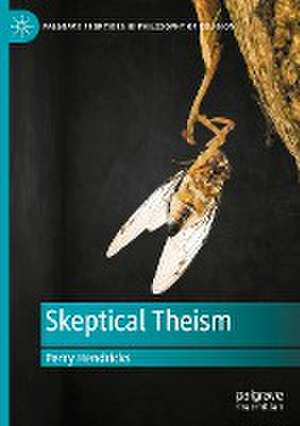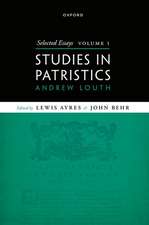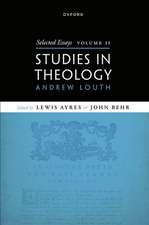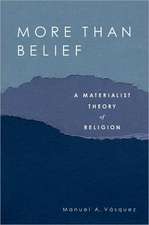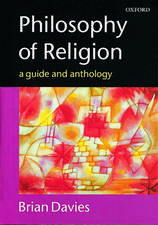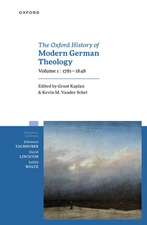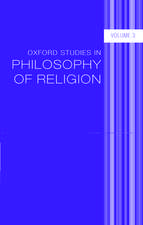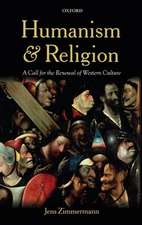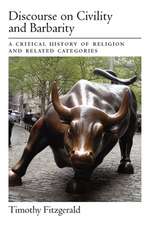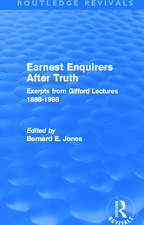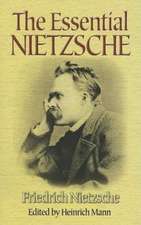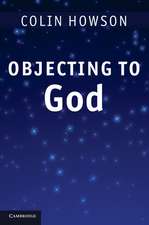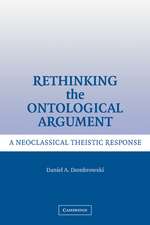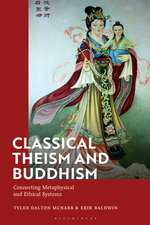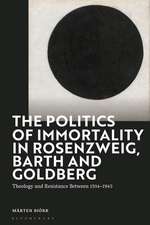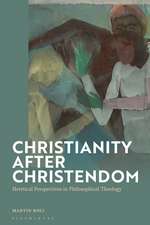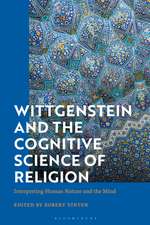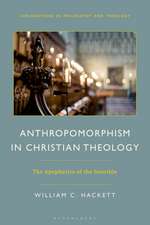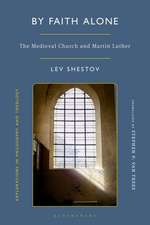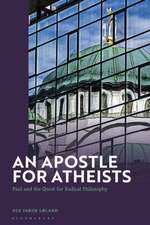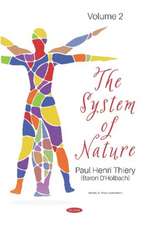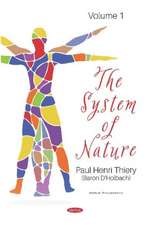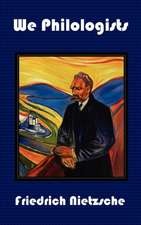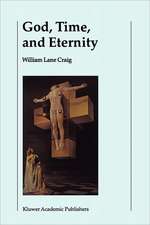Skeptical Theism: Palgrave Frontiers in Philosophy of Religion
Autor Perry Hendricksen Limba Engleză Hardback – 7 dec 2023
Din seria Palgrave Frontiers in Philosophy of Religion
- 15%
 Preț: 522.56 lei
Preț: 522.56 lei - 18%
 Preț: 727.18 lei
Preț: 727.18 lei -
 Preț: 391.61 lei
Preț: 391.61 lei - 18%
 Preț: 725.43 lei
Preț: 725.43 lei -
 Preț: 380.07 lei
Preț: 380.07 lei -
 Preț: 350.12 lei
Preț: 350.12 lei -
 Preț: 391.61 lei
Preț: 391.61 lei - 15%
 Preț: 641.53 lei
Preț: 641.53 lei - 18%
 Preț: 727.18 lei
Preț: 727.18 lei -
 Preț: 386.99 lei
Preț: 386.99 lei - 15%
 Preț: 634.82 lei
Preț: 634.82 lei -
 Preț: 263.45 lei
Preț: 263.45 lei -
 Preț: 357.63 lei
Preț: 357.63 lei -
 Preț: 386.81 lei
Preț: 386.81 lei - 18%
 Preț: 786.66 lei
Preț: 786.66 lei -
 Preț: 452.03 lei
Preț: 452.03 lei -
 Preț: 387.75 lei
Preț: 387.75 lei -
 Preț: 381.98 lei
Preț: 381.98 lei -
 Preț: 382.18 lei
Preț: 382.18 lei -
 Preț: 386.81 lei
Preț: 386.81 lei - 18%
 Preț: 789.20 lei
Preț: 789.20 lei - 15%
 Preț: 524.88 lei
Preț: 524.88 lei -
 Preț: 482.17 lei
Preț: 482.17 lei - 15%
 Preț: 529.92 lei
Preț: 529.92 lei - 18%
 Preț: 787.61 lei
Preț: 787.61 lei - 18%
 Preț: 722.12 lei
Preț: 722.12 lei -
 Preț: 387.96 lei
Preț: 387.96 lei -
 Preț: 393.52 lei
Preț: 393.52 lei - 18%
 Preț: 1122.42 lei
Preț: 1122.42 lei -
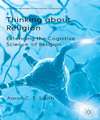 Preț: 391.61 lei
Preț: 391.61 lei
Preț: 691.33 lei
Preț vechi: 864.16 lei
-20% Nou
Puncte Express: 1037
Preț estimativ în valută:
132.30€ • 137.62$ • 109.22£
132.30€ • 137.62$ • 109.22£
Carte disponibilă
Livrare economică 22 martie-05 aprilie
Livrare express 11-15 martie pentru 32.51 lei
Preluare comenzi: 021 569.72.76
Specificații
ISBN-13: 9783031342707
ISBN-10: 3031342704
Pagini: 294
Ilustrații: XIII, 294 p.
Dimensiuni: 148 x 210 x 23 mm
Greutate: 0.52 kg
Ediția:1st ed. 2023
Editura: Springer Nature Switzerland
Colecția Palgrave Macmillan
Seria Palgrave Frontiers in Philosophy of Religion
Locul publicării:Cham, Switzerland
ISBN-10: 3031342704
Pagini: 294
Ilustrații: XIII, 294 p.
Dimensiuni: 148 x 210 x 23 mm
Greutate: 0.52 kg
Ediția:1st ed. 2023
Editura: Springer Nature Switzerland
Colecția Palgrave Macmillan
Seria Palgrave Frontiers in Philosophy of Religion
Locul publicării:Cham, Switzerland
Cuprins
1. Introduction.- 2. Axiological Skeptical Theism Proved.- 3. Deontological Skeptical Theism Proved.- 4. Skeptical Theism and The Problems of Evil.- 5. Skeptical Theism and Other Arguments for Atheism.- 6. Skeptical Theism Defeated?.- 7. Faithful Skeptical Theism.- 8. Theodicy and Natural Theology.- 9. Commonsense Problems of Evil.
Notă biografică
Perry Hendricks is an adjunct professor at the University of Minnesota, Morris. He has published numerous articles in such journals as: Analysis, American Philosophical Quarterly, Ergo, The Journal of the American Philosophical Association, and Pacific Philosophical Quarterly.
Textul de pe ultima copertă
“Perry Hendricks raises the discussion of skeptical theism to a new level of sophistication, relying on detailed arguments to support skeptical theism instead of just intuitions and analogies. This book is a must-read for anyone interested in the intellectual problem of evil.”
-Paul Draper, Professor of Philosophy, Purdue University“Skeptical theism—which expresses skepticism about our ability to accurately evaluate divine permission of suffering and evil—is one of the most popular contemporary replies to the atheistic argument from evil. Perry Hendricks’ book, Skeptical Theism, is a must-read work for anyone interested in this response to the problem of evil or in atheistic arguments more generally. It is chock-full of novel and compelling reasoning, both in support of skeptical theism and in response to all of the major objections to that view to date.”
-Michael Bergmann, Professor of Philosophy, Purdue University Is evil evidence against the existence of God? Does divine hiddenness provide an evidential problem for theism? Is our evolutionary history evidence that God doesn’t exist? Skeptical theism is the view that humans are cognitively limited in important ways that prevent us from providing affirmative answers to these evidential questions. In this book—the first monograph published on skeptical theism—Perry Hendricks gives careful, novel, and compelling arguments in favor of skeptical theism and provides a comprehensive defense of it, addressing all major objections to skeptical theism on offer. The implications of skeptical theism are teased out: it undermines the most prominent arguments for atheism on offer, which significantly lowers the epistemic status of atheism.
Perry Hendricks is an adjunct professor at the University of Minnesota, Morris. He has published numerous articles in such journals as: Analysis, American Philosophical Quarterly, Ergo, The Journal of the American Philosophical Association, and Pacific Philosophical Quarterly.
-Paul Draper, Professor of Philosophy, Purdue University“Skeptical theism—which expresses skepticism about our ability to accurately evaluate divine permission of suffering and evil—is one of the most popular contemporary replies to the atheistic argument from evil. Perry Hendricks’ book, Skeptical Theism, is a must-read work for anyone interested in this response to the problem of evil or in atheistic arguments more generally. It is chock-full of novel and compelling reasoning, both in support of skeptical theism and in response to all of the major objections to that view to date.”
-Michael Bergmann, Professor of Philosophy, Purdue University Is evil evidence against the existence of God? Does divine hiddenness provide an evidential problem for theism? Is our evolutionary history evidence that God doesn’t exist? Skeptical theism is the view that humans are cognitively limited in important ways that prevent us from providing affirmative answers to these evidential questions. In this book—the first monograph published on skeptical theism—Perry Hendricks gives careful, novel, and compelling arguments in favor of skeptical theism and provides a comprehensive defense of it, addressing all major objections to skeptical theism on offer. The implications of skeptical theism are teased out: it undermines the most prominent arguments for atheism on offer, which significantly lowers the epistemic status of atheism.
Perry Hendricks is an adjunct professor at the University of Minnesota, Morris. He has published numerous articles in such journals as: Analysis, American Philosophical Quarterly, Ergo, The Journal of the American Philosophical Association, and Pacific Philosophical Quarterly.
Caracteristici
Discusses the problem of evil, evolution, and divine hiddenness Discusses and defends skeptical theism and how it undermines the popular arguments against God’s existence Argues that belief in God is not irrational despite all of the evil and suffering found in the world
